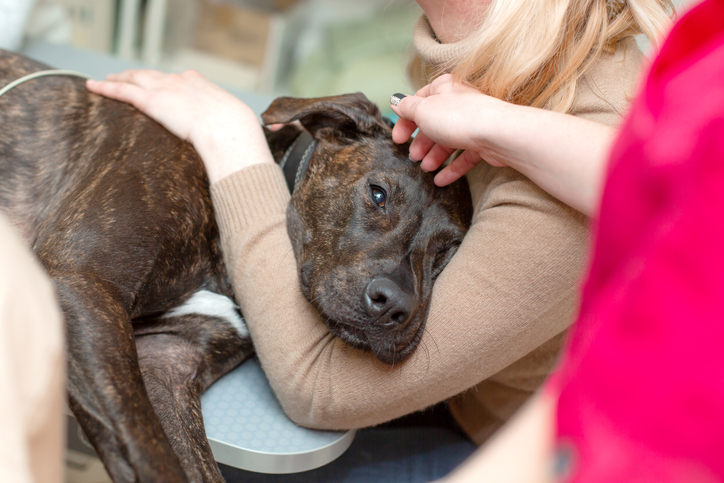If your beloved canine companion is showing signs of lethargy, it can be a cause for concern. If your dog is lethargic, it can be an indication of a serious health problem, so it is important to take action quickly and find out the underlying cause.
Is your dog showing signs of being lethargic? If so, it is important to take them to the vet as soon as possible. Lethargy can be a sign of an underlying medical condition that needs to be addressed. Your vet will be able to provide a diagnosis and recommend a treatment plan for your pet.
In this article, we will dive into the topic of what to do if your dog is lethargic and provide practical tips for helping your pup get back to feeling its best. Lethargy in dogs can have a variety of causes, ranging from physical health issues to psychological stressors. Regardless of the cause, it is important to pay attention to your dog’s energy levels and take action if you notice a significant change.
What is Lethargy?
Lethargy in dogs is a state of sluggishness or drowsiness. It is a common symptom that can be caused by a variety of factors, including illness, medication, and underlying conditions such as diabetes or kidney disease. Dogs may become lethargic due to a lack of energy, pain, or discomfort. They may be less interested in playing or going for walks and may sleep more than usual. If your dog is lethargic, it is important to observe its behavior and speak with your veterinarian for a proper diagnosis and treatment plan.
Signs and Symptoms of Lethargy
Lethargy in dogs can be characterized by a general lack of energy and activity. Some signs and symptoms of lethargy in dogs may include:
- Decreased activity level and a preference for resting or sleeping
- Loss of interest in playing or going for walks
- Decreased appetite or refusal to eat
- Weakness or difficulty standing or walking
- Vomiting or diarrhea
- Decreased responsiveness to commands or stimuli
- Dry or pale gums, which can be a sign of dehydration or anemia
- Increased thirst or urination
- Changes in behavior, such as appearing depressed or anxious
In dogs, lethargy can be a symptom of many different underlying conditions, so it is important to consult your veterinarian if you notice these signs. They can help determine the cause of your dog’s lethargy and provide appropriate treatment.

Possible Causes of Lethargy
There are many potential reasons why a dog might experience lethargy. Some common causes of lethargy in dogs include illness, infection, inflammation, injury, medication, and underlying medical conditions such as diabetes or kidney disease. Other possible causes of lethargy in dogs include lack of exercise, stress, anxiety, and dietary imbalances. Age can also be a factor, as older dogs may naturally have a lower activity level.
Medical Causes
There are several medical causes of lethargy in dogs that can range from mild to severe. Some common medical causes of lethargy in dogs include:
- Infection: Dogs can develop infections from bacteria, viruses, fungi, or parasites, which can cause lethargy as the body fights off the infection.
- Inflammation: Inflammation can be caused by a variety of factors, such as injury, arthritis, or autoimmune disorders, and can lead to lethargy as the body responds to the inflammation.
- Anemia: Anemia is a condition in which the body does not have enough red blood cells to properly transport oxygen to the body’s tissues. This can cause lethargy, as well as weakness, pale gums, and shortness of breath.
- Diabetes: Dogs with diabetes may experience lethargy as a result of high or low blood sugar levels.
- Kidney disease: Kidney disease can cause lethargy as the kidneys are unable to properly filter waste products from the body.
- Cancer: Dogs with cancer may experience lethargy as a result of cancer or treatment for cancer.

Environmental Causes
There are several environmental factors that can cause lethargy in dogs. Some common environmental causes of lethargy in dogs include:
- Lack of exercise: Dogs require regular exercise to stay healthy and happy, and a lack of exercise can lead to lethargy.
- Stress or anxiety: Dogs can become stressed or anxious due to changes in their environment or routine, and this can cause lethargy.
- Diet: An unbalanced diet or a lack of proper nutrition can lead to lethargy in dogs.
- Climate: Dogs may become lethargic in extreme temperatures, either too hot or too cold, as the body works to maintain a normal body temperature.
- Age: Older dogs may naturally have a lower activity level and may be more prone to lethargy.
Diagnosis and Treatment of Lethargy
Diagnosis and treatment of lethargy in dogs will depend on the underlying cause. To diagnose the cause of lethargy in your dog, your veterinarian will likely ask about your dog’s medical history, perform a physical examination, and possibly recommend blood work, x-rays, or other diagnostic tests. Once the cause of your dog’s lethargy has been determined, your veterinarian will recommend a treatment plan.
Treatment for lethargy in dogs may involve addressing any underlying medical conditions, such as administering antibiotics for an infection or adjusting insulin levels for diabetes. In some cases, treatment may involve addressing environmental factors, such as increasing exercise or modifying the diet. If your dog is experiencing pain or discomfort, your veterinarian may recommend pain management medications. It is important to follow your veterinarian’s recommendations and continue to monitor your dog’s condition, as lethargy can be a symptom of a serious underlying condition.
Conclusion
If your dog is lethargic, it is important to visit a veterinarian as soon as possible to determine the underlying cause. If an underlying medical condition is determined, follow the veterinarian’s instructions for treatment. Additionally, provide your dog with plenty of rest and a healthy diet to help them regain their energy.
If you have any questions about your dog acting lethargic, please call us at (908) 359-2000 or schedule an appointment with us! Here at Harlingen Veterinary Clinic, we are ready to help you and your pet!





